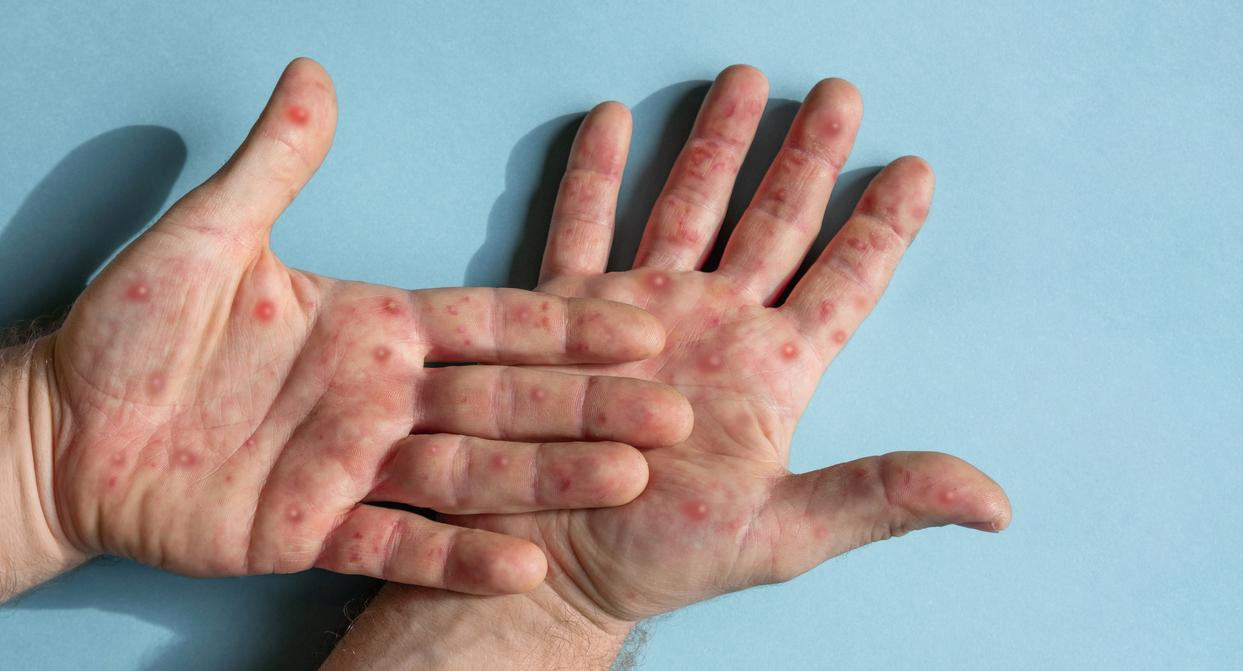
Amid ongoing clade 1 mpox outbreaks in Africa, 58% of US adults say they would be willing to be vaccinated against the viral illness if their physician or health authority were to recommend it, up 12 percentage points since 2022, a University of Texas survey finds.
Published yesterday in Vaccine, the study compares the results of an online survey conducted during the 2022 global outbreak of clade 2b mpox with those of a September 2024 survey of 828 participants fielded during the African clade 1b mpox outbreaks and scattered cases reported elsewhere, including the United States.
The surveys were designed to gauge mpox awareness, risk perception, intent to vaccinate, and trusted information sources.
"In 2022, an unprecedented global outbreak of mpox Clade IIb prompted the World Health Organization (WHO) to declare a Public Health Emergency of International Concern (PHEIC)," the investigators noted. "By 2024, cases continued to escalate significantly within the Democratic Republic of the Congo (DRC), with the Clade Ib variant spreading to neighboring countries."
Health workers still most trusted source of information
In 2024, 58% of adults were willing to receive the mpox vaccine if their doctor or health authority recommended it, up from 46% in 2022. Survey respondents from US Health and Humans Services (HHS) Region 1 (Connecticut, Maine, Massachusetts, New Hampshire, Rhode Island, and Vermont) were the least likely to say they would receive the mpox vaccine, even if it were recommended.
These results highlight the need for ongoing education among US adults to improve awareness of and vaccination intention for the mpox vaccine.
Self-reported knowledge of mpox (40%), as well as perceived self-efficacy (55%) and average risk perception (3.2) have also climbed since 2022. Healthcare workers remain the most trusted sources of information (73%), while trust in the federal government to provide factual information rose to 58%.
"These results highlight the need for ongoing education among US adults to improve awareness of and vaccination intention for the mpox vaccine," the researchers wrote. "The consistently high degrees of trust placed in healthcare professionals and officials should guide future communications about mpox and other infectious diseases, and reinforce the importance of leveraging trusted sources to share essential public health information."
 Flu activity continues to ebb nationwide, with rates of influenza-like illness (ILI) dropping further last week, but flu-related deaths in children climbed to 204, up 6 from the previous week, the Centers for Disease Control and Prevention (CDC) said in its
Flu activity continues to ebb nationwide, with rates of influenza-like illness (ILI) dropping further last week, but flu-related deaths in children climbed to 204, up 6 from the previous week, the Centers for Disease Control and Prevention (CDC) said in its .jpg)











